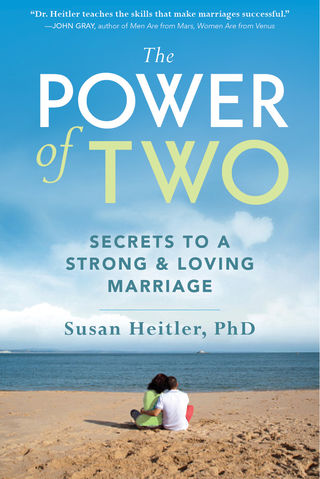Marriage
How Good Are You at the Art of Conversation? A Quiz
What makes a good conversationalist? These 10 skills may surprise you.
Posted July 6, 2015

My mother-in-law enjoys hosting dinner parties with guests who can engage in stimulating conversation. I recall one statement that she made over thirty years ago that still intrigues me. "He's a great conversationalist," she said. Hmm. What makes someone a standout at the art of talking with people? Do the habits of great conversationalists dovetail or differ with the skills that I teach couples in marriage counseling?
By contrast, one of my readers recently wrote to me, "I'm very lonely and want to fit in with people I'm trying to meet." Her comment reminded me of the many people who feel uncertain of themselves in conversations, especially at social gatherings and with new people.
Many people are not effective in a conversation.
Far too many people feel over-confident in social groups, overconfident relative to the actual impact they have on their conversational partner. They lack awareness that with a few upgrades, their conversational attractiveness could zoom upwards.They have no idea that that they continually violate the rules for good conversation.
Conversational deficits impact relationships at home as well. How well couples talk with each other has major impact on how affectionate they feel toward each other.
As you read through these 10 factors, how good a conversationalist are you? Would you like to upgrade your skills at the art of conversation?
Score yourself:
0=Rarely or never
1=Occasionally
2= Often
3=I'm excellent at this, doing it consistently
__1. How often do you use the two magic words How and What?
My reader also wrote: "I would like to ask good questions, but I seriously don't know if I always can quickly come up with a good one. I used to be in a marriage with a husband who stomped me down. I learned to "keep your mouth shut" so I feel inhibited when it comes to asking questions."
The number one key to talking with people in a way that makes them want to converse more with you: Ask open-ended questions, that is, a question that draws out broader information than a mere yes or no.
Almost any question will be open-ended if it starts with one of the two magic question words, What or How. These words draw out further information. Use those starter words in response to whatever caught your attention in what the person you are talking with just said.
Here's an example:
"I'm from a small town in Kansas."
"Interesting. I've actually never been to Kansas. As you look back on your growing up, what stands out for you about living in Kansas?"
By contrast, starting sentences with "Are you...?", "Did you...", "Have you...?" tends to evoke just yes or no responses.
"Did you like living in Kansas?"
"No, not really."
While occasional yes-no questions can be okay, starting the majority of your questions with how or what will set you ahead of the pack as a conversationalist.
My reader's note added a further important dimension to the issue of asking questions. She wrote, "At what point is a question too personal? For instance, if I'm in a group and many are women -- and I've just met them, do I ask if they are single, divorced, widowed??? "
In the subtle dance of getting-to-know-you, starting with arms-length topics is a good idea. From there gradually proceding to more personal territory may feel safer than a too-quick darting into personal spaces.
More importantly though, for sensitive issues, talking about yourself first can make asking questions about the other person feel more appropriate. That guideline is counter-intuitive. At the same time, it's true. While too much talking about yourself can become off-putting, some initial self-disclosure invites others to talk more openly about themselves.
For instance, "Since my divorce five years ago I've found that ...." Odds are then that the other person will volunteer their marital status, since most people mirror each other in conversations.
__2. How well do you listen? Do you digest aloud and build on what you heard?
"I loved living in Kansas. It's so wide-open."
"I was in Kansas City once and it didn't feel open. It felt crowded and cramped."
In the example above, the second speaker makes a common mistake. He omitted listening for what was interesting and digesting aloud what he heard. Note the difference here:
"I loved living in Kansas. It's so wide-open."
"Yes, those miles and miles of farmland feel incredible to someone like me who grew up in the city. ..."
Digesting others' comments aloud makes a foundation for building the idea further with a next comment or a follow-up how or what question.
Most people miss here because they listen to disagree. Or they listen to turn the focus back onto themselves.
"I've actually never been to Kansas. I'm from ...", would have missed the opportunity to listen to learn, the chance to explore more about the other person's life.
Adding comments about yourself is fine, provided you first explore more about what you have heard from the other person. Follow up by thinking aloud about what you have heard and expanding on it. Then, once you've gone a distance down that road, changing the focus to yourself will add instead of taking away from the conversation.
__3. How consistently do you avoid but, using and or and at the same time instead?
"But you don't have a Kansas accent.." could be playful, and at the same time risks turning the conversation into oppositional dialogue.
But deletes whatever came before. Do you like when others dismiss what you say? Probably not. But sours what could have been a fascinating discussion.
__4. How consistently do you express what is, avoiding negatives like isn't or don't?
Which would you rather hear: "I don't like adventure movies." Or "I prefer comedies to adventure movies."
My reader who wrote to me added, "If someone is speaking of something and I want to show great interest, do I say a negative about how 'I've never thought of this. I'll want to definitely try this.' Or will that sound like I have nothing to contribute? In the past people have seemed to drift away after I act ignorant about something."
In general, negative words turn listeners off. "I've never..." is far less compelling than second sentence in this comment, "I'll definitely want to try this..."
Negative attitudes toward yourself or toward others also can be off-putting. The writer was correct that "acting ignorant" is unappealing, as the term ignorant has negative connotations. By contrast, think of yourself as interested. Regarding yourself as interested is positive and therefore will feel attractive to others.
__5. How well do you monitor for symmetry of air time?
One simple test of conversational skill is whether you talk more, less, or about equally to the person you are talking with. In engaging conversations participants almost always share equal air time. Symmetry matters.
A corollary of this principle is to aim for dialogue, not monologues. An occasional lengthy anecdote may be fine. More than one will quickly establish you as hogging the conversational floor.
Conversations that feel engaging tend to proceed in a series of short chunks. Follow the 3-sentence rule: After 3 sentences, it's the other person's time to talk.
Conversations in which dialogue flows rapidly with short and equal contributions from both participants tend to be the most energized and feel the most engaging. On serious topics, both people feel that their perspective counts when they each have had similar air time.
__6. How often do you ask questions about the other person's life, viewpoints, and interests?
The more you explore, with genuine interest, the other person's thoughts, the more the other person will engage with interest in the conversation.
Do though remember to aim for symmetry. Add your own perspective.
__7. How well do you balance giving information and asking questions?
My reader asked, "How many questions does one pose before the other person feels bombarded....I guess practice will tell me."
Yes, experience helps, and so does the general rule of alternating questions with talking. For instance, after you have asked a question, be sure that you respond to their answer by digesting it aloud. Think aloud about their answer, about what is interesting to you in their answer.
Immediately following one question with another creates the feeling that you are putting the other person on the witness stand. Digesting the answer you have received by commenting aloud on it conveys that what you have heard was interesting, adding to positive feelings in the conversation.
__8. How sensitive are you to when a friendly interruption can add energy to a conversation?
My reader wrote: "I'm told (or was by my ex-husband) that I interrupted people all the time ... so I really want to be on guard for that."
Surprisingly, linguistic studies have concluded that in the conversations that most people find most satisfactory, both participants interrupt. Conversations feel lively when each person speaks briefly. Interruptions prevent monologues. They can help participants who lack a good off-switch once they start talking.
If you are interrupting to disagree, that's another story. Those interruptions will feel hostile and can turn the dialogue into a shooting match. However interruptions to ask an interested question or to react positively and digest what you've heard are hallmarks of gratifying dialogues.
Beware though if the person you are speaking with is cognitively rigid or is narcisstically interested only in talking, not in true dialogue. These folks have a difficult time with interruptions that other people might enjoy.
__9. How well do you sit or stand tall, and connect with your eyes, ears, and brain as well as with words?
My reader wrote: "I try to give eye contact, but concentration, comprehension -- why don't I have that down pat? Am I too into myself?"
Upright posture conveys self-confidence. Eye contact adds to connection. Listening attentively means that your ears are open to new ideas. It means also that when the other person is talking, you track with what they say.
Using your listening time to think about what you are going to say next severs connection.
__10. How interested in others and in the world are you?
The more you read, watch informative TV programs, or observe sensitively the world around you, the more you will have interesting ideas to add in a conversation.
People enjoy anything new. By adding new input, you will be perceived as stimulating to talk with.
At the same time though, what you add in the way of new information is only a part of what makes you fun to talk with. If you comment and build with genuine interest on what the other person is saying, that's equally important in becoming a great conversationalist.
Your conversation skills score
How did you do in this assessment of skills? If your total score was 20 or above, you are probably in good shape. The closer you are to 30, the better you are as a conversationalist.
The skills that make you good at the art of conversation turn out to dovetail very strongly with the skills that can make you good at couple relationships. Go for both!
--------------------------------------

Dr. Heitler, a Harvard-educated Denver clinical psychologist, specializes in skills for successful couple interactions.
Learn more about the skills for strong relationship interactions from Dr. Heitler's book The Power of Two: Secrets to a Strong & Loving Marriage. See also her fun interactive website at PowerOfTwoMarriage.com.




